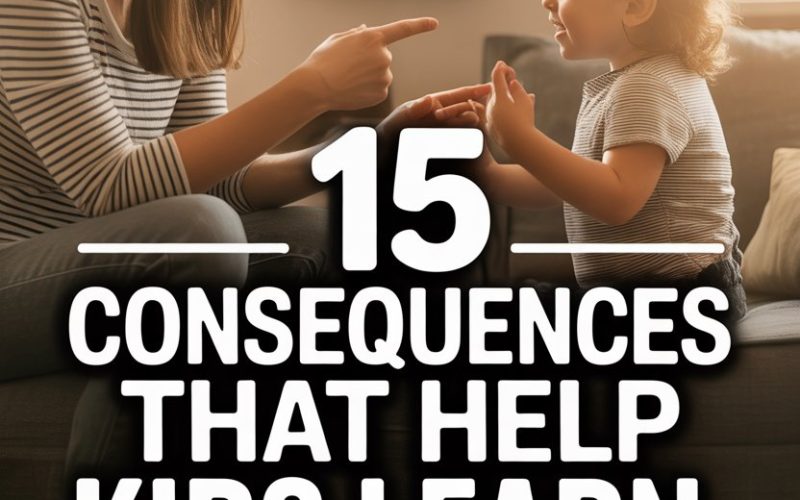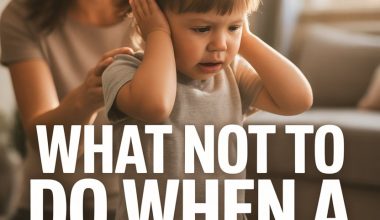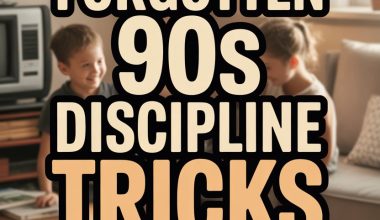Ever get the feeling you say “no” more than you say your own child’s name?
Parenting is full of teaching moments, but let’s be honest, most of us want our kids to learn from their missteps without needing a therapy fund by the time they’re 18.
The trick is finding consequences that shape, not scare.
Here’s your cheat sheet to kinder, smarter, and way more effective consequences that actually help your kids grow.
1. Natural consequences let reality do the heavy lifting
You’ve told your son 837 times to bring his raincoat, but he insists he’ll be “fine.” He gets soaked. Shocking! Nothing says “bring your coat” like shivering in soggy trainers.
Kids learn best when real life does the talking—just as long as they’re not in danger, let the world teach a little.
2. Logical consequences make the link crystal clear
Spilled juice on the living room rug? The person holding the cup gets to mop it up. Logical consequences match the behaviour: you make the mess, you help clean it.
This helps kids see the connection between actions and what comes next, according to child psychologist Dr. Laura Markham’s approach to peaceful discipline.
3. Loss of privilege, not loss of love
When your daughter draws on the wall with your very favourite lipstick (the one you save for weddings and job interviews), she can’t use art supplies for a day.
She’s not exiled from family fun, just taking a brief holiday from the markers. Kids need to know they’re always loved—even when they mess up.
4. The do-over: a second chance with guidance
“Try again, but with gentler hands.” The do-over gives kids a redo, whether it’s how they ask for a snack or how they handle frustration with a sibling.
Practice makes improvement. Plus, it beats sending them to their room for the 48th time this week.
5. Restitution: making things right, not just saying sorry
Knocked over a friend’s block tower in a fit of pique? Help rebuild it together.
Restitution is the unsung hero of consequences—it teaches empathy, responsibility, and that a real apology means rolling up your sleeves.
6. Time-in, not time-out
Instead of banishing your child to solitary (a.k.a., the hallway rug), try a time-in. Sit together, breathe, and help your child process big feelings.
Research on positive parenting puts time-ins high on the list for emotional regulation—plus, you might even get a cuddle out of it.
7. Delayed gratification: waiting is underrated
Your child tosses his peas on the floor? Dinner is over for him until the next meal. He’ll learn pretty fast that hunger is a fabulous motivator (and you won’t spend your evening picking up peas).
Delayed gratification builds patience—a superpower for both kids and parents.
8. Problem-solving together
Your daughter “borrows” your phone without asking. Instead of a lecture, ask her, “How can we make sure this doesn’t happen again?”
Letting kids suggest solutions gives them ownership and helps them feel competent. According to the Center on the Developing Child at Harvard, this builds executive function skills for life.
9. Logical delay: pause before playing
“Once your toys are put away, we can head to the park.” Not a punishment—just a logical step. This connects effort and reward, and no one ends up stepping on Lego in the dark.
10. Positive practice: rehearse the right way
Your son barrels through the front door like a stampeding cow, again. “Let’s try walking in calmly this time.” Positive practice means showing kids exactly what to do and giving them the chance to practice.
The more they repeat the right thing, the less energy you’ll spend repeating yourself.
11. Apology notes that mean something
Not just a scribbled “sorry” with a potato-smiley. Encourage your child to write (or draw) a genuine apology, maybe with a suggestion for fixing things.
This teaches intentionality and thoughtfulness, sneaky as that sounds.
12. Earning back privileges, not just losing them
Left the tablet sitting in the garden during a rainstorm? The device goes away until your child shows she can care for it. But here’s the twist: set a clear, achievable way to earn it back, like a week of careful use with her other toys.
Responsibility isn’t just about loss—it’s about regaining trust.
13. Reflection time: think it through with you
After things cool off, invite your child to chat about what happened. No lectures, just questions: “What were you feeling? What could you do next time?”
Studies suggest reflective conversations help develop emotional intelligence and self-control.
14. Chores as consequence—not as punishment, as repair
Your son tracks mud through the kitchen (again). He gets to help mop up. Chores are not medieval torture, they’re just the natural outcome of making a mess.
Kids feel capable when they contribute—and the floor gets clean. Win-win.
15. Consistent follow-through: the ultimate superpower
Say what you mean, mean what you say. If you’ve calmly promised, “If you throw your food, dinner’s done,” you have to stick to it—even when you’re running late or just want peace and quiet.
Consistency is what makes every other consequence on this list actually work, a fact backed by parenting experts everywhere.
What Happens When We Get It Right?
Raising kids who don’t quake at the mere mention of “consequence” is a gift—to them, to you, and honestly to their future teachers, flatmates, and partners.
These 15 approaches show kids that mistakes are fixable, feelings are manageable, and relationships are safe, even when things go wrong.
Parenting isn’t about being perfect—it’s about being present, and about learning (sometimes the hard way) right alongside your kids.
The magic happens when consequences teach our children something wonderful: that learning from a mistake is always better than living in fear of making one.
Go on—try one tonight.





